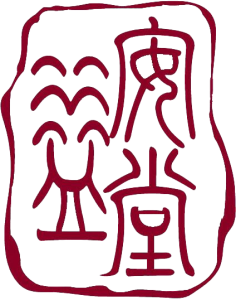Lupus, Hashimoto’s thyroiditis, Crohn’s disease…You may have heard of these conditions, but do you know what they have in common? They are all types of autoimmune disease and they are all lifelong conditions.
Approximately 50 million Americans are living with an autoimmune disease. If you are facing one of these conditions, you know how crucial it is to have a treatment plan in place to help you manage your symptoms and live the healthiest, most active life possible.
Acupuncture and Traditional Chinese Medicine (TCM) can be powerful allies in living with an autoimmune disease. They can help:
• Strengthen your immune system
• Relieve painful symptoms
• Reduce your stress, and
• Bolster your overall health
Perhaps most importantly, your practitioner will focus on YOU as an individual. Your care will be tailored to your specific needs and symptoms, so you won’t ever receive a “one-size-fits-all” treatment.
When the immune response goes wrong
To understand autoimmune disease, we must first understand how the immune system works. The immune system generally acts as the body’s protection against foreign substances and microorganisms such as bacteria and viruses. When the immune system is working properly, it can tell the difference between the body’s own tissues and outside organisms.
In the case of autoimmune diseases the immune system stops being able to differentiate, and begins to attack the body’s own cells, tissues, and organs. This immune response causes harmful inflammation that eventually leads to an autoimmune condition. There are about 80 recognized autoimmune diseases, and several other conditions such as Chronic Fatigue Syndrome and fibromyalgia that are currently believed to have an autoimmune component.
Autoimmune conditions are often difficult to diagnose and treat because their symptoms and progression can vary from person to person. These conditions may either affect many organs or target one specific part of the body. The symptoms may be persistent, get progressively worse, or go into remission with occasional “flare-ups,” and can range from being mild to so severe that they become disabling.
The exact causes of autoimmune diseases are unknown, but since many conditions run in families, it’s believed there is a genetic relationship. Since women are at a much higher risk for many autoimmune diseases, hormones may also play a part.
Treatments generally rely upon a variety of medications, which can help to relieve symptoms, but may have uncomfortable side effects.
How acupuncture can help
Acupuncture and TCM take a holistic, or whole body approach to healing based on the idea of Qi, or vital energy. Qi flows through pathways called meridians to nourish all of the body’s organs, protect us from illness and keep us healthy. When the flow of Qi becomes diminished or blocked, disease can result.
The goal of treatment will be to find and treat the underlying imbalances that are affecting the flow of Qi. By addressing the root cause of the disease, TCM can help your body regain balance and help improve your overall health. Acupuncture and TCM can also help reduce inflammation, soothe uncomfortable symptoms, relieve side effects from medication, and increase your energy levels.
During treatment, fine, sterile needles will be inserted at specific points along the meridians in order to unblock any obstruction and allow Qi to flow freely. Your practitioner may also help improve your nutrition, reduce your stress, or start you on an exercise program.
In addition, your practitioner may recommend herbal remedies and supplements designed to support your health and boost your immune system. It’s important to communicate with all of your health providers in order to maximize your healing potential.
Acupuncture and TCM have proven effective against a wide variety of health concerns. By incorporating these powerful tools into your treatment program, you’re making the decision to support and nourish your body and take control of your autoimmune condition.
References:
Autoimmune diseases: overview. The National Women’s Health Information Center. Link
Chronic Fatigue Syndrome. WebMD. May 17, 2007. Link


